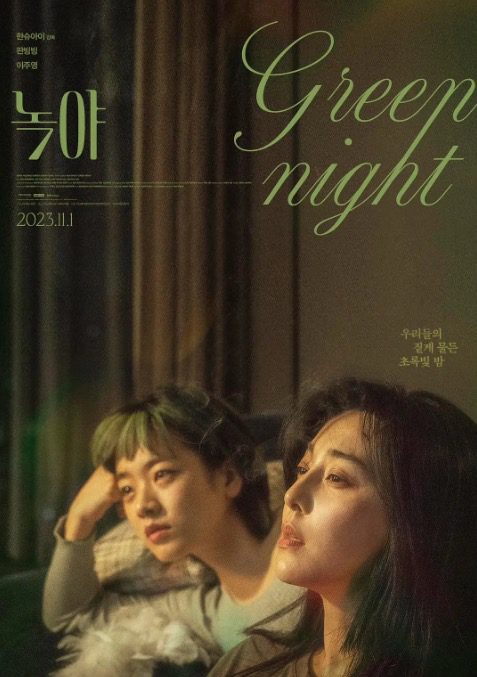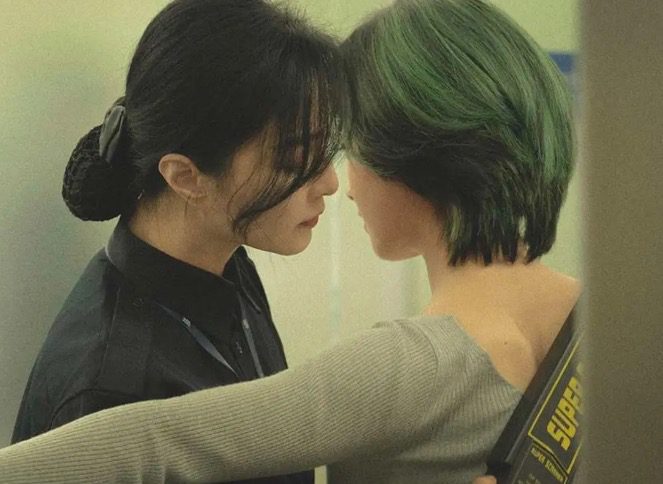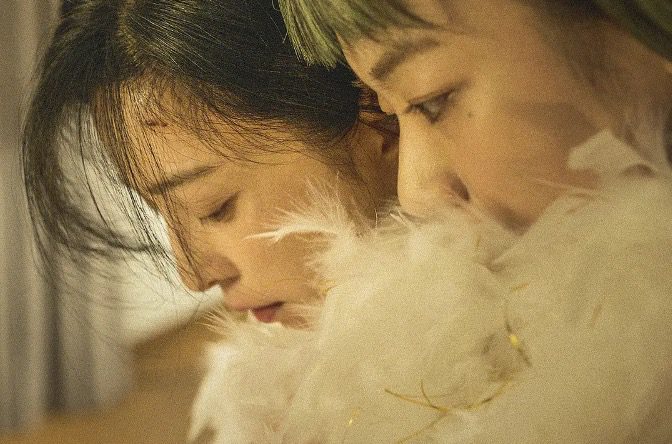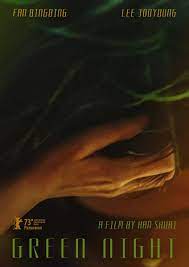As a movie enthusiast passionate about singular cinematic encounters, I recently had the opportunity to watch “Green Night,” a film that has profoundly altered my perspective on representation and storytelling in movies.

This standout piece in Korean LGBTQ+ cinema offers a unique depiction of the lives of two women against the bustling backdrop of Seoul, South Korea.
The narrative centers on Jingxia, a Chinese immigrant employed at a security checkpoint in Seoul’s airport. Her life takes an unexpected turn when she meets a disobedient, green-haired girl, a bold representation of lesbian characters in Korean cinema.

This encounter led Jingxia on a journey of self-reliance, a theme that resonated deeply with me. Together, they navigate the challenges of their oppressive marriages and venture into the perilous realm of Korean ganglands, a tale of defiance and survival emblematic of lesbian-themed Korean dramas.
You can now watch the full movie of ‘Green Night’, a Korean film, directly on YouTube. Here is the viewing link:
Drawing inspiration from “Thelma & Louise,” the iconic 1991 road movie, “Green Night” offers a modern twist on female crime and resistance. The screenplay’s pacing and the realistic depiction of their lives as fugitives are remarkable, adding depth to the South Korean lesbian films genre.
The performances in “Green Night” are a highlight, with the female lead delivering emotionally powerful scenes that showcase the complexities of lesbian relationships in Korean cinema.

Director Han Shuai, known for his works in Korean women’s love stories, has created a visually stunning narrative. His aesthetic influences, particularly those of Lou Ye, are evident in the film’s cinematography, adding a unique flair to Seoul-based lesbian narratives.
Compared to “Blue Is the Warmest Color,” where blue stands for freedom, this movie offers a striking contrast. The predominant color in this instance is a ghastly green, which stands for horror, gloom, and disgusting dirt.
At this year’s Berlin Film Festival, “Green Night” was a topic of much discussion, particularly for its LGBTQ+ elements in Korean cinema. The film’s nomination for the Crystal Bear Award and its filming in Seoul highlight its impact on the Korean LGBTQ+ film scene.
The lead role of Jingxia is played by the well-known Chinese actress Fan Bingbing, who previously appeared in X-Men 3 as the mutant Blink.
She later disappeared from the public eye due to a purported tax probe, but this time she took up the task of playing Korean lesbian roles. Because of the increasingly sensitive and strict environment of China’s entertainment industry, there are fewer and fewer Chinese lesbian movies.
The return of Fan Bingbing in a leading role and the addition of co-star Lee Zhouying bring depth to this Korean same-sex romance movie.

“Green Night” is more than just a film; it’s an exploration of the complexity of human nature and the unpredictability of existence. Its insightful themes and masterful storytelling make it a must-watch, especially for those interested in the evolving landscape of Korean LGBTQ+ cinema.

Loving this evolution! If you’re into my articles, do me a solid and share them on your social media. Let’s spread the word and get these lesbian romance stories out there!




